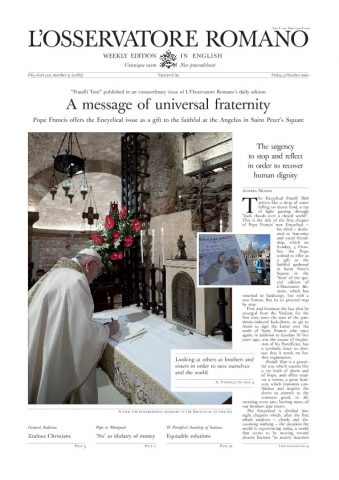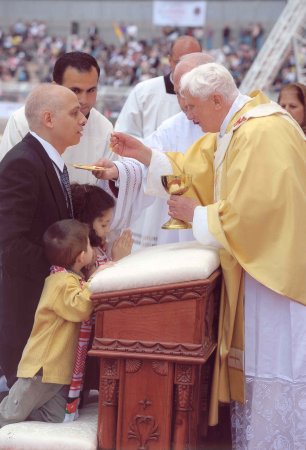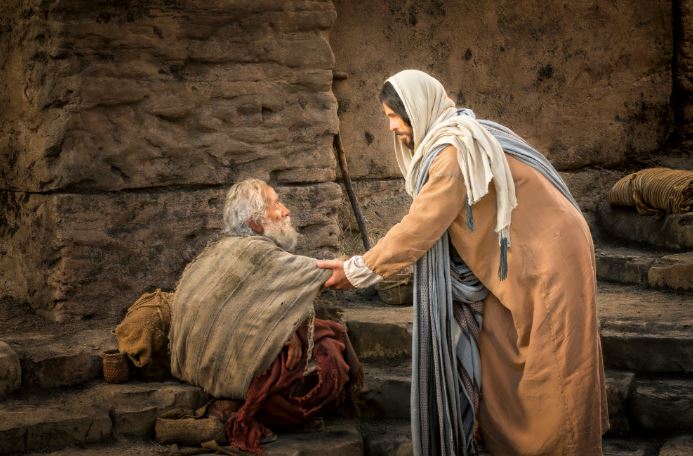Culture, Dialogue, Religion, and Truth in Fratelli Tutti, by Eduardo Echeverria

The Sneakiest of the Seven Deadly Sins, Dr. Marcellino D’Ambrosio
October 10, 2020
CNA: New Orleans Archbishop: Priest’s Desecration of Altar ‘Demonic’ (We Had the Altar Removed and Burned)
October 10, 2020
Essential universal truth claims of Christianity are missing in Pope Francis’s new encyclical.
By Eduardo Echeverria, Catholic World Report, October 9, 2020
Eduardo Echeverria is Professor of Philosophy and Systematic Theology at Sacred Heart Major Seminary in Detroit. He earned his doctorate in philosophy from the Free University in Amsterdam and his S.T.L. from the University of St. Thomas Aquinas (Angelicum) in Rome.
![]() Pope Francis’ recent encyclical, Fratelli Tutti, On Fraternity and Social Friendship, advances a plea to all men and women of good will that they “recover the shared passion to create a community of belonging and solidarity” (no. 36), “a universal aspiration to fraternity” (no. 8), embodying brotherhood, not only within the boundaries of local communities, but also cross-culturally, uniting them in their inalienable dignity seeking “free and open . . . authentic encounters,” with a focus on seeking the “the truth in dialogue” (no. 50), for the sake of the common good.
Pope Francis’ recent encyclical, Fratelli Tutti, On Fraternity and Social Friendship, advances a plea to all men and women of good will that they “recover the shared passion to create a community of belonging and solidarity” (no. 36), “a universal aspiration to fraternity” (no. 8), embodying brotherhood, not only within the boundaries of local communities, but also cross-culturally, uniting them in their inalienable dignity seeking “free and open . . . authentic encounters,” with a focus on seeking the “the truth in dialogue” (no. 50), for the sake of the common good.
Developing a dynamic and communicative concept of culture in his encyclical, Pope Francis seeks “to create processes of encounter, processes that build a people that can accept differences” (no. 216). This would be a local and cross-cultural encounter embodied in a society “where differences coexist, complementing, enriching and reciprocally illuminating one another, even amid disagreements and reservations” (no. 215). …




